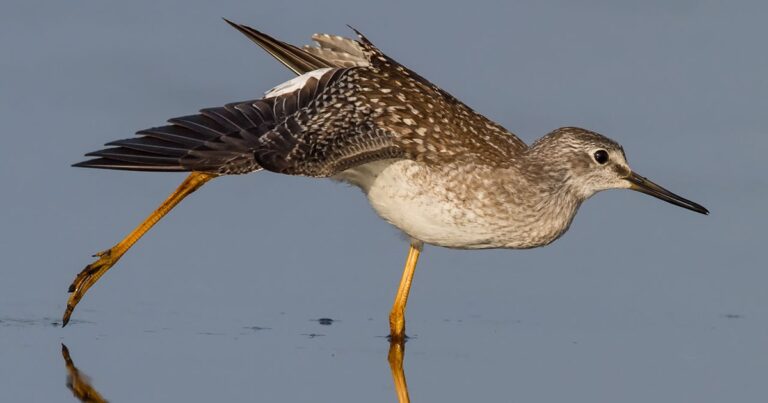WASHINGTON, D.C. – Because the main hen conservation group within the Americas, the Nationwide Audubon Society will be part of world leaders on the 2023 UN Local weather Change Convention (COP28) to name for a give attention to nature-based climate solutions that tackle the twin crises of local weather change and biodiversity loss. Audubon’s COP28 delegation will embrace CEO Elizabeth Gray, Vice President Of Local weather Sarah Rose, Colombia Nation Director for Audubon Americas Camilo Cardozo, and Chief Technique Integration Officer Allison Vogt.
“This 12 months’s convention will play a important position in coordinating local weather coverage that impacts us at each degree. We should combat for outcomes that may guarantee birds—and our personal communities—thrive,” stated Elizabeth Grey, CEO of the Nationwide Audubon Society.
International policymakers at COP15 in Montreal pledged to guard biodiversity and preserve 30 p.c of land, water, and seas by 2030, and COP28 presents the chance to do extra to halt and reverse nature loss. As Audubon scientists present in a 2021 study, important hen habitats typically overlap with key ecosystems that additionally function pure carbon sinks and habitats for a lot of species. Strategically restoring and sustaining precedence landscapes like wetlands, forests, and grasslands will present secure havens for birds and different wildlife whereas additionally serving to to mitigate the results of local weather change.
“Birds are dying at an alarming price from habitat loss and our warming planet, however the options are clear: we are able to reverse this alarming development for birds and mitigate the results of local weather change on individuals and the planet by specializing in nature-based local weather options,” stated Elizabeth Grey. “Once we preserve hen habitat, we do greater than defend biodiversity; we spend money on the important carbon-reducing advantages these ecosystems present to fight local weather change.”
To boost consciousness in regards to the effectiveness of nature-based options, Audubon will host a panel on the Nature Positive Pavilion to which the press is invited:
Thriving Together: Resilience of Birds, Wetlands, and Communities Across the Americas
Saturday, December 2 at 3:00 p.m. GST
This panel will give attention to wetlands, which might play an outsized position in supporting individuals and wildlife within the face of local weather change by shoring up meals safety, defending in opposition to sea degree rise and storm surges, and offering important animal habitat. Led by Dr. Elizabeth Grey, CEO of the Nationwide Audubon Society, this panel will showcase three sustainable wetland tasks in Panama, Colombia, and the US, together with the most effective administration practices throughout various sorts of wetlands and the way this work may be scaled for the best impression.
Audubon employees are utilizing science, advocacy, schooling, and on-the-ground conservation to advance nature-based options throughout the Western Hemisphere. This contains working with companions to revive 100 acres of wetlands in an industrialized however biodiverse space in Chicago, co-leading the Nice Salt Lake Watershed Enhancement Belief’s efforts to enhance water quantity and quality for Nice Salt Lake, partaking on the Mid-Barataria Sediment Diversion, Louisiana’s most ambitious coastal restoration project thus far, and restoring marine-coastal ecosystems in Latin America and the Caribbean, the place mangroves play a key role.
###
About Audubon
The Nationwide Audubon Society is a nonprofit conservation group that protects birds and the locations they want at this time and tomorrow. We work all through the Americas in the direction of a future the place birds thrive as a result of Audubon is a strong, various, and ever-growing power for conservation. Audubon has greater than 700 employees working throughout the hemisphere and greater than 1.5 million energetic supporters. North America has misplaced three billion birds since 1970, and greater than 500 hen species are vulnerable to extinction throughout Latin America and the Caribbean. Birds act as early warning techniques in regards to the well being of the environment, and so they inform us that birds – and our planet – are in disaster. Collectively as one Audubon, we’re working to change the course of local weather change and habitat loss, resulting in more healthy hen populations and reversing present developments in biodiversity loss. We do that by implementing on-the-ground conservation, partnering with native communities, influencing public and company coverage, and constructing group. Study extra at www.audubon.org and on Fb, Twitter and Instagram @audubonsociety.
Media contact:
Robyn Shepherd, robyn.shepherd@audubon.org

